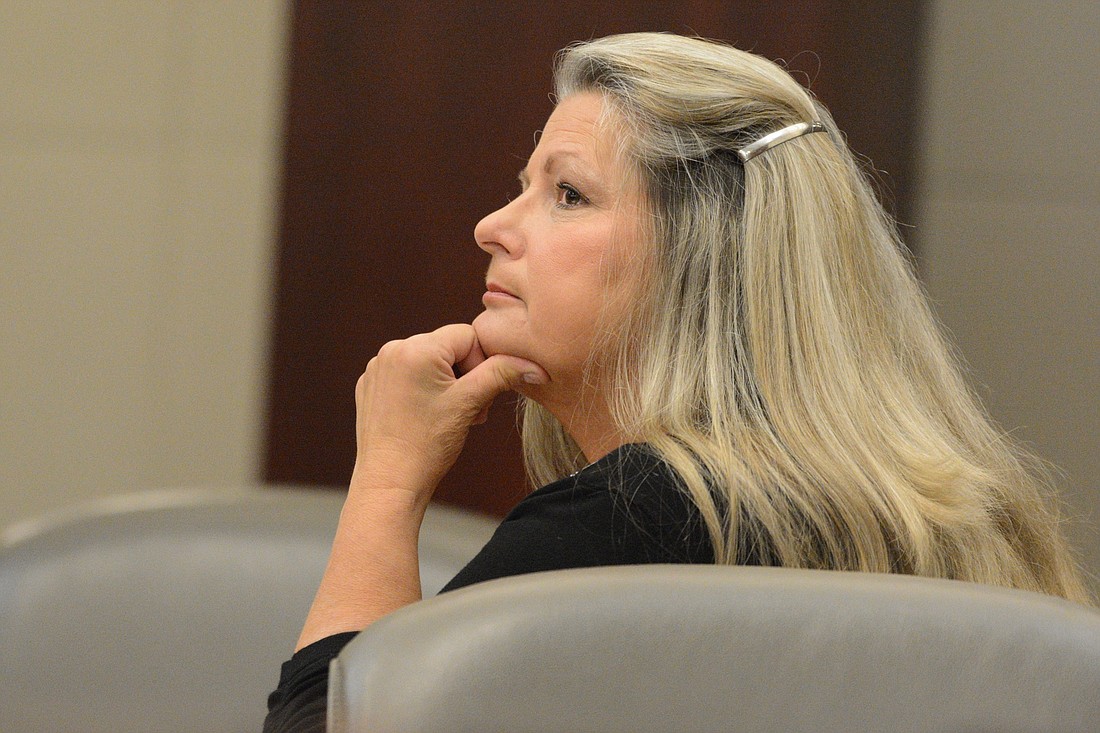- December 13, 2025

Kimberle Weeks, the former Flagler County elections supervisor, has been sentenced to spend 30 days in jail and an additional 18 months on probation. Weeks has also been ordered to pay $2,871 to offset the costs of the investigation that led to her conviction.
But her sentence has been stayed pending an appeal, which could take one or two years. In the meantime, she will be out on a $25,000 appellate bond.
Weeks was convicted April 5 of seven third-degree felonies for recording other people without their consent and then disseminating one such recording. Recording other people's conversations without their consent is generally illegal in Florida.
"Mrs. Weeks felt she was above the law," Assistant State Attorney Jason Lewis said during Weeks' May 18 sentencing hearing before Judge Margaret Hudson. "This woman sitting right here decided that she was going to define what the law was. … What she decided to do was undermine the public trust. … We expect our public officials to behave appropriately, honestly, ethically. And Ms. Weeks violated all of those."
Lewis said Weeks should be sentenced to some time in the county jail, as well as community control — a restrictive form of probation — and he said that she should have to pay for investigative costs.
"At the end of the day, what Mrs. Weeks did completely and utterly decimated this community," Lewis said. "It was a complete disregard for everything she swore to uphold when she took office."
The officials Weeks recorded were Florida Secretary of State Ken Detzner; Florida Elections Division attorney Gary Holland; Florida Assistant Attorney General Gerry Hammond; Whitney Anderson, a Florida Attorney General's office employee who took consumer complaints; Virginia Smith, Palm Coast's city clerk; Ron Labasky, a private attorney who represented the Florida State Association of Supervisors of Elections. Weeks also recorded a conversation with Shannon Brown, her neighbor.
Lewis read aloud a joint letter from Holland and Detzner.
"Her conduct reflects a compete lack of respect for the law," the letter stated. "It did not matter if the taping was illegal, she was going to tape. …Such actions are highly prejudicial to the public trust expected of a public official."
Smith also testified, saying, "These crimes did hurt many people and organizations." To Weeks, who was present at the hearing, she said, "Your crimes cost money, but, more importantly, they damaged trust — the trust of Flagler County citizens and voters."
One woman testified in Weeks' favor, saying that she had been "a very hardworking, dedicated asset to the county," and that Weeks had been caring for an 81-year-old man who was a friend of Weeks' father, something Weeks' attorney reiterated in his comments shortly before Hudson handed down her sentence.
Weeks' defense had not argued that she did not make the recordings, although it did argue that the prosecution hadn't proved that she'd disseminated one. The defense had argued that making the recordings did not violate the law.
Her attorneys asserted that the since the conversations Weeks recorded involved public officials and public employees speaking about government business, they should be considered "public meetings," which are legal to record.
But the conversations had been between Weeks and individual people outside of the context of regular noticed, public meetings. In one case, Detzener had specifically told Weeks not to record a phone conversation with him and other officials, and she had done so anyway. The jury did not find the defense's argument convincing.